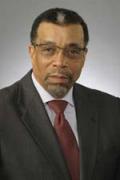In 1895, Darrow took on the first murder case of his career, defending Patrick Eugene Prendergast, a drifter who confessed to murdering Chicago mayor Carter H. Harrison, Sr. Darrow lost the case and Prendergast was executed that same year. Among the murder cases throughout Darrow's career, the Prendergast case would prove to be the only one resulting in an execution.
Throughout his career, Darrow devoted himself to opposing the death penalty. He believed capital punishment conflicted with humanitarian progress. Darrow was widely known for moving juries and judges with his eloquence.
One of Darrow's most famous cases came in 1924 when he agreed to represent Nathan Leopold and Richard Loeb. Leopold and Loeb were the teenage sons of two wealthy Chicago families, who were accused of kidnapping and killing Bobby Franks, a 14-year-old boy. It's reported that they boys just wanted to see what it would be like to commit the ultimate crime. Darrow convinced them to plead guilty and then argued for his clients to receive life in prison rather than the death penalty. Darrow argued that his clients weren't completely responsible for their actions, but were the products of their environment. Darrow's approach worked and Leopold and Loeb were sentenced to life in prison rather than death.
Many ordinary Americans were angered at Darrow because they believed he had "sold-out" for an exorbitant fee. Darrow announced that his compensation would be determined by a committee of officers from the Chicago Bar Association. After lengthy negotiations with the defendant's families, he ended up getting $70,000 in gross fees, which, after expenses and taxes, netted Darrow only $30,000.
In 1925, Darrow defended John Scopes in the "Monkey Trial" which pitted lawyers William Jennings Bryan and Clarence Darrow against each other. The case involved the law which forbade the teaching, in any state-funded educational establishment in Tennessee, of "any theory that denies the story of the Divine Creation of man as taught in the Bible, and to teach instead that man has descended from a lower order of animals." The law did not prohibit the teaching of evolution of any other species of plant or animal. It has often been called the "Monkey Trial".
During the trial, Darrow requested that Bryan be called to the stand as an expert witness on the Bible. Over the other prosecutor's objection, Bryan agreed. Many believe their exchange caused the trial to turn against Bryan and for Darrow.
Eventually, the Tennessee Supreme Court dismissed the case saying, "Nothing is to be gained by prolonging the life of this bizarre case."
In his later years Darrow became popular as a lecturer where he advocated his views on capital punishment, Prohibition, prison reform, evolution, the relationship of science to society, and the philosophic problem of free will versus determinism. Darrow's last important public service was as chairman of a commission appointed by President Franklin D. Roosevelt to analyze the operation of the National Recovery Administration. Darrow passed away on March 13, 1938 after a long and respectable law career.




